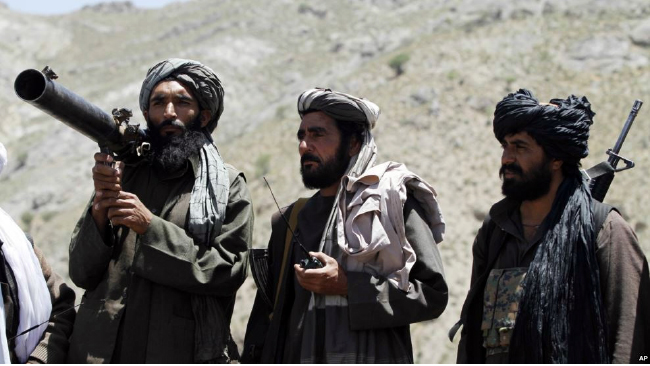Following the ebb and flow of peace talks between Afghan government and the Taliban, the talks have resurfaced in national and international media. Meanwhile, the civilian fatalities increased on a large scale. With the death of Mullah Akthar Mansour, who was killed in May in a US drone strike, the negotiation of peace came to a standstill and the Taliban intensified their attacks which resulted in high combatant and non-combatant casualties and ended the Quadrilateral Coordination Group (QCG). Subsequently, the relation between Kabul and Islamabad soured as the officials ushered in blame game.
Afghan President Muhammad Ashraf Ghani said at a NATO summit in Warsaw that Islamabad did not fulfill its commitment regarding the peace talks. “Our regional initiatives with neighbors are beginning to yield significant cooperative dividends. The exception is with Pakistan – despite clear commitments to a quadrilateral peace process; their dangerous distinction between good and bad terrorists is being maintained in practice,” Ghani is cited as saying. Furthermore, Afghan officials claimed frequently that the Taliban militants, mainly their high-ranking leaders enjoyed safe havens in Pakistan.
However, Pakistan has denied harboring the Taliban elements and suggested resuming peace talks the only viable option for peace and security in the country. Pakistani officials said that they would support Afghan-led and Afghan-owned talks and still reveal their willingness for facilitating the talks. But the trust between Kabul and Islamabad declined to its lowest point.
It is likely that Pakistan is able to use its “leverage” to put pressure on the Taliban elements so as to come to negotiating table since the Taliban’s headquarter and “most of the Taliban’s leaders”, mainly Mansour’s successor Mullah Haibatullah Akhundzada. As a result, the Doha-based Taliban official said Pakistan was taken into confidence about the Qatar meetings, but they state Pakistan recently arrested some senior Taliban commanders to show its displeasure at being left out. A Taliban member reportedly said that Pakistani security agencies had raided a madrasah in Quetta and arrested another Taliban commander, Mullah Abdul Samad Sani. “We do not know what is going on but this is second time during the past two months that Pakistani authorities raided a madrasah in Quetta to arrest senior Taliban member,” the Quetta-based Taliban is quoted as saying. Therefore, it is said that a delegation from the Taliban’s political office visited Pakistan over the weekend to brief Pakistani security agencies on the Qatar meetings and complain about the recent arrests of its senior commanders. Hence, this reveals the fact that in case of being marginalized, Islamabad will use its “leverage” to be involved in talks.
It was reported earlier that the Taliban elements had held informal meetings with Afghan and US officials in Qatar, without the presence of Pakistani representatives. The Taliban sources said Mullah Omar’s brother Abdul Manan participated in the talks but there was no breakthrough toward resuming formal talks. In one of my commentaries, I pointed out that the resumption of talks, which leaked to the media did not seem to be formal since Afghan officials, including the Chief Executive Officer (CEO) Dr. Abdullah Abdullah, expressed unawareness of its details. Moreover, the Taliban have not decreased their insurgency in the country and Haibatullah is yet to comment over the issue.
Addressing a press conference after his trip to Saudi Arabia, CEO Dr. Abdullah Abdullah said, “I do not know details over government’s peace talks with Taliban in Qatar.” Believing that most of the Taliban’s leaders were based on Pakistan, he added, “Taliban’s trip to Pakistan is not news because they are there and carry out all their activities from there.”
It is believed that exchanging harsh rhetoric will aggravate the challenges and the time is not ripe to persist on the sore point. As the Taliban have decaled willingness for direct talks, Pakistan is not supposed to play the role of whistle-blower but has to support the Afghan-led and Afghan-owned talks, as it has constantly claimed. In other words, it is time for Pakistani officials to build trust and prove its commitment through using its leverage in favor of talks.
Whenever, the talks between Afghan government and the Taliban approached a sensitive point, a whistle-blower emerged and ruined the whole process. Perhaps, the revelation of Mullah Omar’s death was one of the strongest possible blows to the peace talks and put the process to the deadlock. Reeling from Mullah Omar’s death, the Taliban intensified their insurgency and carried out indiscriminate attacks in Afghanistan. To resume the negotiation, the Taliban will have to stop violence and bloodshed. In a nutshell, declaring peace talks on the one hand and increasing militancy on the other hand seems no more than a game – which has been played for years without a tangible result.
Home » Opinion » Putting Pressure on Taliban
Putting Pressure on Taliban
| Hujjatullah Zia

